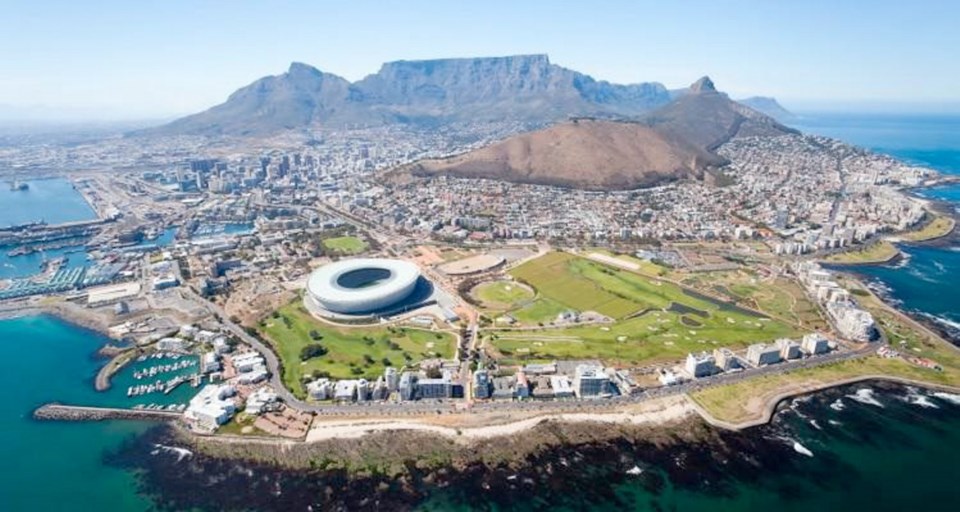The clock ominously ticks down toward the projected “Day Zero” when Cape Town, South Africa, will run out of water.
This historically catastrophic event puts heightened urgency on this year’s World Water Day on March 22 — an annual event celebrated across the globe that brings attention to local and global water issues.
Cape Town, with more than four million residents, is the first major city to face the reality of running out of water. Yet it is not alone. Other major cities around the world are also confronting the spectre of taps running dry, including Sao Paulo, Brazil, and Beijing.
Every continent is facing the reality of a global water crisis in its own way. This is no longer an abstract concept or future problem, but one that is real, and happening now. And while saąúĽĘ´«Ă˝, especially the “wet” West Coast, might feel immune to the challenges in faraway places, we should not be complacent about our water wealth and the difficulties ahead.
Canadians have long subscribed to the comfortable “myth of abundance” — the belief that we have so much water that we could never run out. With this belief come our unsustainable patterns of water consumption and waste. In fact, Canadians remain the second-highest per-capita users of water in the world.
saąúĽĘ´«Ă˝ can certainly be proud of some leading-edge examples of freshwater stewardship: Both Victoria and Metro Vancouver have successfully secured the long-term protection of their drinking-water watersheds. This kind of source protection is world-class for large urban centres. But these examples obscure other parts of the picture across saąúĽĘ´«Ă˝. And that picture isn’t as rosy as many Canadians might think.
Drinking water sources are under threat from intensive livestock operations. Mines and oil-and-gas operations are destroying valuable fish habitat, and turning lakes and rivers into dead zones. Communities are facing hotter, drier summers and coming to grips with their own versions of “Day Zero.”
Take the struggle of many First Nations communities for the basic human right to safe drinking water. At the time of writing, 81 First Nations communities across the country were living with long-term drinking-water advisories, unable to drink or even bathe in their local water supply. Even with increasing government attention, progress feels like two steps forward and one (or even two) steps back.
Since 2015, 52 long-term drinking water advisories were lifted, but 28 new advisories were added. saąúĽĘ´«Ă˝ has a long way to go to meet its goal of zero long-term drinking-water advisories in Indigenous communities by 2021.
Last year, WWF-saąúĽĘ´«Ă˝ released a report card on the health of all major watersheds across the country, and none passed with flying colours. Of the 167 watersheds assessed, 93 have experienced significant habitat loss and 60 received a high or very high pollution score. Every watershed has already been affected by climate change.
Against the backdrop of degrading watershed health, a rapidly changing climate and an increasingly unpredictable hydrological cycle, how we manage our shared fresh water — among communities, ecosystems and other countries — is becoming ever more important. The Columbia River Basin, one of the largest rivers that saąúĽĘ´«Ă˝ shares with the U.S., is a case in point.
The Columbia River system, and the power and flood control benefits it provides, has been co-operatively managed between saąúĽĘ´«Ă˝ and the U.S. since 1964 under the Columbia River Treaty, which is up for potential renegotiation. But times have changed since the treaty was signed.
Local communities continue to live with the impacts from the treaty dams that flooded entire river valleys and displaced more than 2,000 residents from their homes, and are now pushing to be part of the treaty renegotiation. Indigenous nations are also calling for a formal role in treaty renegotiation and implementation.
If saąúĽĘ´«Ă˝ takes its commitments to the United Nations Declaration on the Rights of Indigenous Peoples seriously, respect for Indigenous governance and authority must be a fundamental aspect of a truly world-class treaty. Ecosystem function can no longer be an “add on,” but must be a primary pillar of a modern agreement.
And outstanding questions remain about what it would take to reintroduce salmon to their home waters as part of a modern treaty, after their almost 80-year absence from the upper reaches of the watershed. It is clear the unsustainable decisions and practices of the past no longer meet modern challenges.
The looming water crisis in Cape Town is a warning to all of us not to be careless in how we treat our most precious resource. It will take persistent community-level action, unrelenting co-operation, and bold leadership from the global to the local to ensure water is protected now and into the future.
Rosie Simms is a researcher and project manager with University of Victoria’s POLIS Water Sustainability Project. Jesse Baltutis is a PhD candidate and graduate fellow at the University of Victoria’s Centre for Global Studies and Water, Innovation and Global Governance Lab. Oliver M. Brandes is the associate director at the University of Victoria’s Centre for Global Studies and serves as co-director of the POLIS Project on Ecological Governance.
